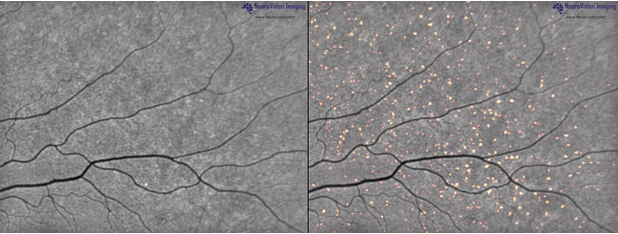A new research has revealed that certain biological changes in the retina and lens of the eye may help predict Alzheimer 10-20 years before its onset. The findings were presented at the Alzheimer's Association International Conference in Copenhagen on Sunday.
Alzheimer's disease (AD), the most common form of dementia, currently affects more than 5 million Americans, and an estimated 35 million people worldwide. These numbers are expected to rise significantly in the next couple of decades.
The disease is caused by a build-up of a protein called beta-amyloid in the brain. The build-up adversely affects hippocampus, the section of our brains involved in memory formation.
At present, Alzheimer is detected through spinal taps or PET scans, that are not only invasive, but also expensive and not readily available. But Scientists at Australia's CSIRO are working on a new diagnostic technique that relies on a simple eye test that checks for the presence of the protein.
"What makes it unique is that the retina is actually an extension of the brain and so we think that a lot of the pathology that is occurring in the brain may also be occurring in the retina," said Dr. James Galvin, who works as a neurologist at New York University Langone Medical Center.
Around 200 volunteers, who participated in the trial, were given a dietary supplement containing curcumin, which binds to the beta-amyloid proteins in the retina and appears fluorescent in certain conditions, allowing doctors to spot the proteins with a simple eye test.

Preliminary results on 40 participants showed that the test picked up every participant who had Alzheimer, and correctly identified more than 80 percent of those who did not.
Aside from eye tests, researchers are also focusing on smell, as the ability to identify different smells becomes impaired relatively early in the disease process.